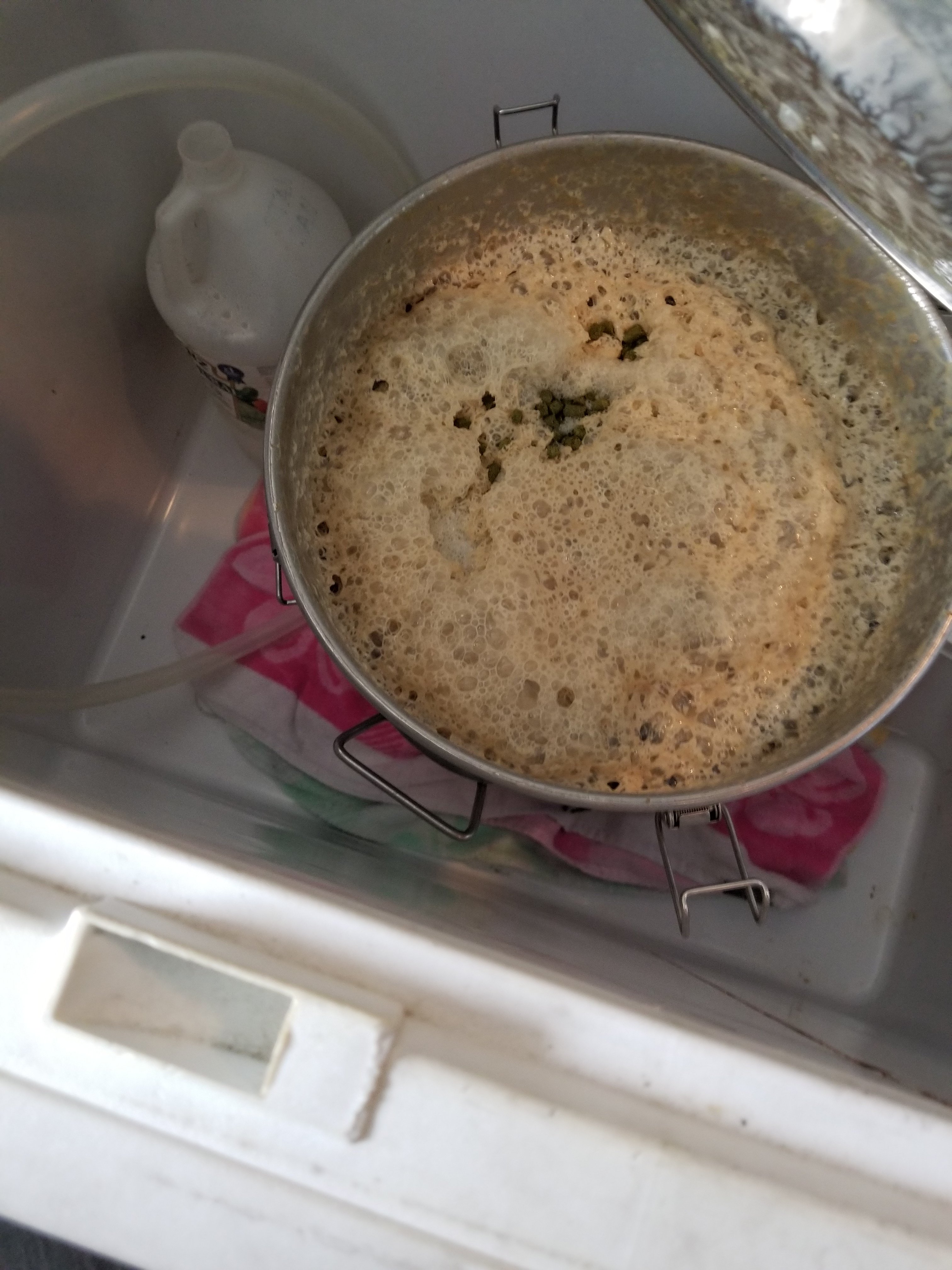BrewnWKopperKat
ʘ‿ʘ
"If you build it ([a sticky] and market it) they will come". There's a link button for the marketing step.A sticky will not slay this myth....
Plus helps reduce the need for large bold red letters.

Last edited:

"If you build it ([a sticky] and market it) they will come". There's a link button for the marketing step.A sticky will not slay this myth....

I understand that gas initially mix, but I don't buy that they remain perfectly mixed forever.
If the theory is that gases just mix perfectly forever, than how do you explain that propane and butane pose a safety risk because they tend to accumulate near the ground? They are gases, and they are "heavier than air" as is the common expression, and they do dangerously accumulate on the ground.
Are you saying that you believe after gases spontaneously homogenize (mix completely), that after some period of time they then spontaneously separate? Can you provide any evidence (like a video showing them "unmixing" similar to the one that shows how they mix)?...
This experience shows how gas mix, not how they "separate" given enough time.

They tend to "accumulate" near the ground because that's where the leaks are happening, near the ground. Stop the leak (which otherwise continues to refresh the dense part of the gradient) and give it time, and the gases will fill whatever space is available, homogeneously. The molecular weight of gases is basically trivial compared with their kinetic energies. There are noticeable "permanent gradients" influenced by molecular weights when you compare gas mixtures at sea level vs the edge of our atmosphere, but on the scales we experience, no.
Air is mostly CO2. Why isn’t all the CO2 on the ground with all the O2 way up high.
Because gases mix. Closed container or not, they mix.
Are you saying that you believe after gases spontaneously homogenize (mix completely), that after some period of time they then spontaneously separate? Can you provide any evidence (like a video showing them "unmixing" similar to the one that shows how they mix)?
Brew on
appalling
blanket adherents
flat earthers
Any chance the forum can "dail back" the hyperbole and labeling?
No, denser gases tend to collect in low spots in the short run. Given time, all gases homogenize. Collection in low spots occurs when the rate of release of the denser gas is faster than the rate of diffusion causing homogenization. An LPG leak is an example of high rate of release.No, I don't say "gases". I say "which gases?". Denser gases will tend to fall to the bottom in the long run, absent perturbation. Propane, butane, propene (and LPG in general) being a clear and undeniable example of this.
If you study the behaviour of those gases you see that they are just "heavy" (dense) and they do collect at the bottom, given time.
Now, again given time, I do expect let's say in a mixture of CO2 and O2 that the denser of the two collects at the bottom, if not perturbed. It certainly happens with propane and I don't see why it shouldn't happen with CO2, even if more slowly.
I think you are mislead by considering the equations for perfect gases (ideal gases) but perfect gases don't exist and many gases show a behaviour which is far from the behaviour of ideal gas.

No, denser gases tend to collect in low spots in the short run. Given time, all gases homogenize. Collection in low spots occurs when the rate of release of the denser gas is faster than the rate of diffusion causing homogenization. An LPG leak is an example of high rate of release.
Are you saying that you believe after gases spontaneously homogenize (mix completely), that after some period of time they then spontaneously separate? Can you provide any evidence (like a video showing them "unmixing" similar to the one that shows how they mix)?
Brew on
... if one is getting oxidation related flavors in the beer.Good practice (being conservative) dictates that it happens instantly and you should do everything possible to minimize exposing a fermented beer to air.


... if you are getting oxidation related flavors in your beer.
No arguemet - everyone tastes beer differently (reference to study in The New IPA chapter 5).I happen to be one that is sensitive to oxidation flavors (and they are many and varied) the common descriptor of cardboard is only one and it is an indicator of severe oxidation. You can also get acetaldehyde (green apple), dulling of malt and hop flavors, loss of hop esters, etc
Am I right in inferring that you did not read yet the document that I quoted in #51?
In the video, the denser gas is at the bottom at the beginning, it doesn't collect in low spots, and in the short run it mixes because the gas particles have this running behaviour.
But LPG does collect on the ground, from wherever you let it leak. If the ground is ventilated the gas is dispersed (because the air is disturbed by the "wind") if the ground is not ventilated the gas just sits on the floor and stays there. Even at 10 cm there is a much higher concentration than at 30 cm, as the paper shows experimentally, and "on the ground" there is more gas than at 10 cm. It really stratifies very much.
There is a picture where the behaviour of LPG is shown with some dry ice, which again has the same behaviour of LPG and sits in a very convincing way on the floor.
I don't ask you or anybody to "believe", but to understand the matter without preconceptions and prejudices. You might find that the laws of gas that you quote do not always apply in real world and in real situations (or in real bottle necks).
Constant source of CO2...
This isn't something decided by popular opinion. It's a scientific fact. CO2 IS heavier than air, but gasses mix and the concept of a CO2 blanket is erroneous.
The only thing up for debate is how long it takes for CO2 to mix with an unacceptable amount of air in the size and shape of container you're using.
Good practice (being conservative) dictates that it happens instantly and you should do everything possible to minimize exposing a fermented beer to air.
Yes, I read the paper. It says nothing to support that mixed gases spontaneously "unmix" or stratify. The paper is all about showing how active air flow will dissipate a transient blob of a gas faster than without active airflow. Nothing surprising there.Am I right in inferring that you did not read yet the document that I quoted in #51?
In the video, the denser gas is at the bottom at the beginning, it doesn't collect in low spots, and in the short run it mixes because the gas particles have this running behaviour.
But LPG does collect on the ground, from wherever you let it leak. If the ground is ventilated the gas is dispersed (because the air is disturbed by the "wind") if the ground is not ventilated the gas just sits on the floor and stays there. Even at 10 cm there is a much higher concentration than at 30 cm, as the paper shows experimentally, and "on the ground" there is more gas than at 10 cm. It really stratifies very much.
There is a picture where the behaviour of LPG is shown with some dry ice, which again has the same behaviour of LPG and sits in a very convincing way on the floor.
I don't ask you or anybody to "believe", but to understand the matter without preconceptions and prejudices. You might find that the laws of gas that you quote do not always apply in real world and in real situations (or in real bottle necks).

The only thing up for debate is how long it takes for CO2 to mix with an unacceptable amount of air in the size and shape of container you're using.
Exactly, this is the crux of the question, and why the absolutist answers are not as helpful, perhaps. Its neither a myth nor an impermeable barrier. The answer to what is an unnacceptable amount of air will vary from brewer to brewer, process to process.
That being said, I appreciate these discussions and reminders of how little bits of our varied brewing practices can impact our beers.
In another topic, it was noted that one of the "problems" with homebrewing in 2020/2021 may be that there is "too much information" (or perhaps "too much discussion" or perhaps "too much debate").These things are possible with some basic process modifications that are not difficult or expensive or unachievable for most.
In another topic, it was noted that one of the "problems" with homebrewing in 2020/2021 may bei that that there is "too much information" (or perhaps "too much discussion" or perhaps "too much debate").
Is there a single place where one can to go to read of those process modifications that you mentioned?

Regardless, in the end it all comes down to this...

Why not uranium hexafluoride?I just use sulfurhexafloride when I bottle. Give my brews a nice zing

I just use sulfurhexafloride when I bottle. Give my brews a nice zing
I used to, but it kept reacting with water to make stinky H2S, O2, and toothpaste.